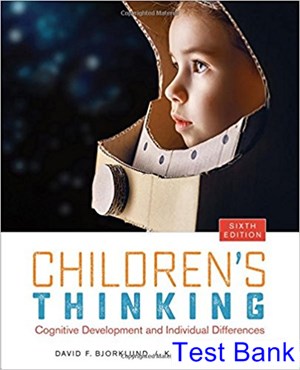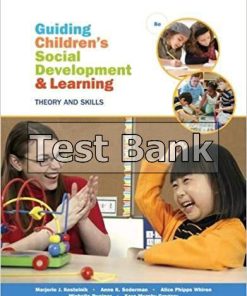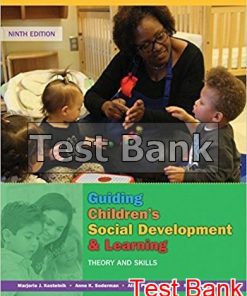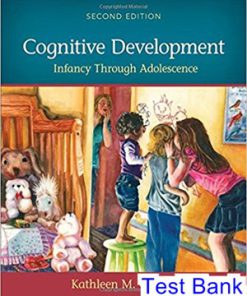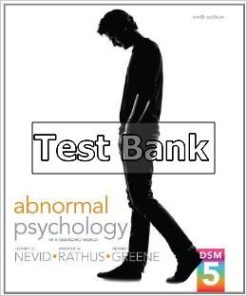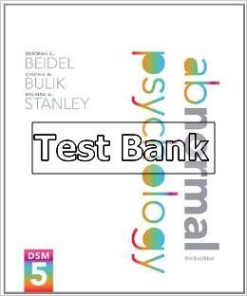| Chapter 1 |
An Introduction to Cognitive Development |
1 |
|
Basic Concepts in Cognitive Development |
2 |
|
Some Issues in Cognitive Development |
6 |
|
Changes That Occur in Cognitive Development |
20 |
|
Overview of the Remainder of the Book |
22 |
|
Summary |
23 |
| Chapter 2 |
Biological Bases of Cognitive Development |
26 |
|
Evolution and Cognitive Development |
28 |
|
Models of Gene-Environment Interaction |
33 |
|
The Development of the Brain |
43 |
|
Developmental Biology and Cognitive Development |
56 |
|
Summary |
57 |
| Chapter 3 |
The Social Construction of Mind: Sociocultural Perspectives on Cognitive Development |
60 |
|
The Role of Culture in Cognitive Development |
62 |
|
Implications for Education |
73 |
|
Sociocultural Theory and Cognitive Development |
75 |
|
Summary |
75 |
| Chapter 4 |
Piaget and the Neo-Piagetians |
78 |
|
Some Assumptions of Piaget’s Theory |
79 |
|
Stages of Development |
83 |
|
The State of Piaget’s Theory Today |
103 |
|
Neo-Piagetian Theories |
107 |
|
Summary |
113 |
| Chapter 5 |
Information-Processing Approaches |
118 |
|
Assumptions of Information-Processing Approaches |
119 |
|
Information-Processing Perspectives on Development |
123 |
|
Capacity and Cognitive Development |
129 |
|
Learning How Not to Respond: Inhibition and Resistance to Interference |
134 |
|
The Role of Knowledge Base in Cognitive Development |
140 |
|
Fuzzy-Trace Theory |
142 |
|
Connectionist Perspective of Developmental Change |
146 |
|
Summary |
147 |
| Chapter 6 |
Learning to Think on Their Own: The Role of Strategies in Cognitive Development |
151 |
|
The Development of Strategies |
152 |
|
Strategies and Metacognition |
167 |
|
Culture and Strategies |
171 |
|
How Do Children’s Strategies Develop? |
172 |
|
Strategies in the Classroom |
178 |
|
Summary |
180 |
| Chapter 7 |
Infant Perception |
183 |
|
Basic Perceptual Abilities of Young Infants |
184 |
|
Some Methodologies Used to Assess Infant Perception |
185 |
|
Auditory Development |
187 |
|
The Development of Visual Perception |
190 |
|
Intermodal Integration |
199 |
|
Category Representation |
201 |
|
Infant Perception: A Successful Past and a Bright Future |
205 |
|
Summary |
206 |
| Chapter 8 |
Spatial Cognition |
208 |
|
The Development of Spatial Abilities in Infants and Toddlers |
209 |
|
Spatial Cognition Beyond Infancy |
220 |
|
Gender Differences in Spatial Cognition |
225 |
|
The Development of Spatial Abilities in Perspective |
230 |
|
Summary |
231 |
| Chapter 9 |
Representation |
233 |
|
Mental Representation Through Infancy |
234 |
|
Learning to Use Symbols |
241 |
|
Children’s Theory of Mind |
248 |
|
Classification |
257 |
|
Summary |
262 |
| Chapter 10 |
Memory Development |
265 |
|
Memory Development in Infancy |
267 |
|
Implicit Memory |
276 |
|
The Development of Event Memory |
278 |
|
Children as Eyewitnesses |
282 |
|
Consistency and Stability of Memory |
294 |
|
Forgetting |
296 |
|
Summary |
297 |
| Chapter 11 |
Language Development |
299 |
|
What Makes a Communication System a Language? |
300 |
|
Describing Children’s Language Development |
301 |
|
Some Theoretical Perspectives of Language Development |
318 |
|
Gender Differences in Language Acquisition |
331 |
|
Language and Thought |
333 |
|
Summary |
334 |
| Chapter 12 |
Problem Solving and Reasoning |
338 |
|
Problem Solving |
339 |
|
Tool Use |
344 |
|
Planning |
348 |
|
Reasoning |
351 |
|
Summary |
361 |
| Chapter 13 |
Social Cognition |
364 |
|
Social Learning |
365 |
|
Social Cognitive Theory |
368 |
|
Cultural Learning |
371 |
|
Social Information Processing |
374 |
|
The Development of a Concept of Self |
377 |
|
Cognitive Bases of Gender Identity |
379 |
|
How “Special” Is Social Cognition? |
388 |
|
Summary |
388 |
| Chapter 14 |
Schooling and Cognition |
391 |
|
The Development of Reading Skills |
392 |
|
Children’s Number and Arithmetic Concepts |
404 |
|
Schooling and Cognitive Development |
421 |
|
Summary |
426 |
| Chapter 15 |
Approaches to the Study of Intelligence |
429 |
|
The Psychometric Approach to the Study of Intelligence |
430 |
|
Information-Processing Approaches to the Study of Intelligence |
440 |
|
Piagetian Approaches to the Study of Intelligence |
448 |
|
Sternberg’s Triarchic Theory of Intelligence |
449 |
|
Gardner’s Theory of Multiple Intelligences |
454 |
|
Summary |
459 |
| Chapter 16 |
Origins, Modification, and Stability of Intellectual Differences |
461 |
|
A Transactional Approach to the Study of Intelligence |
463 |
|
Behavior Genetics and the Heritability of Intelligence |
465 |
|
Experience and Intelligence |
475 |
|
The Stability of Intelligence |
487 |
|
Summary |
495 |
|
Epilogue: Cognitive Development: What Changes and How? |
498 |
|
Seven “Truths” About Cognitive Development |
499 |
|
Diversity of Opinions, But a Single Science |
506 |
|
Glossary |
508 |
|
References |
522 |
|
Credits |
578 |
|
Author Index |
582 |
|
Subject Index |
595 |
